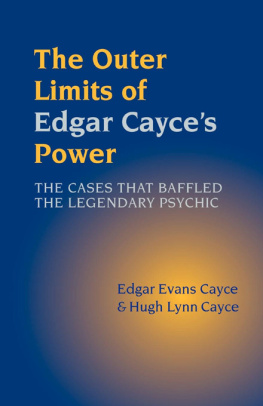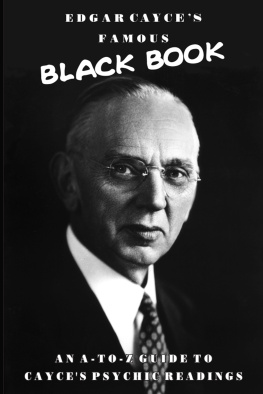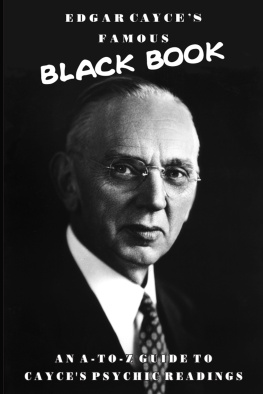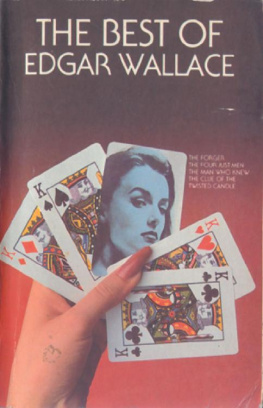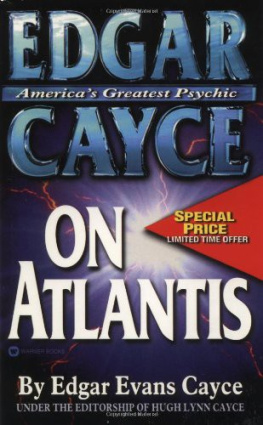Edgar Poe - The Colloquy of Monos and Una
Here you can read online Edgar Poe - The Colloquy of Monos and Una full text of the book (entire story) in english for free. Download pdf and epub, get meaning, cover and reviews about this ebook. genre: Prose. Description of the work, (preface) as well as reviews are available. Best literature library LitArk.com created for fans of good reading and offers a wide selection of genres:
Romance novel
Science fiction
Adventure
Detective
Science
History
Home and family
Prose
Art
Politics
Computer
Non-fiction
Religion
Business
Children
Humor
Choose a favorite category and find really read worthwhile books. Enjoy immersion in the world of imagination, feel the emotions of the characters or learn something new for yourself, make an fascinating discovery.

The Colloquy of Monos and Una: summary, description and annotation
We offer to read an annotation, description, summary or preface (depends on what the author of the book "The Colloquy of Monos and Una" wrote himself). If you haven't found the necessary information about the book — write in the comments, we will try to find it.
The Colloquy of Monos and Una — read online for free the complete book (whole text) full work
Below is the text of the book, divided by pages. System saving the place of the last page read, allows you to conveniently read the book "The Colloquy of Monos and Una" online for free, without having to search again every time where you left off. Put a bookmark, and you can go to the page where you finished reading at any time.
Font size:
Interval:
Bookmark:
The Colloquy of Monos and Una
by Edgar Allan Poe
SophoclesAntig :
These things are in the future.
Una. "Born again?"
Monos. Yes, fairest and best beloved Una, "born again." These were the words upon whose mystical meaning I had so long pondered, rejecting the explanations of the priesthood, until Death himself resolved for me the secret.
Una. Death!
Monos. How strangely, sweet Una, you echo my words! I observe, too, a vacillation in your stepa joyous inquietude in your eyes. You are confused and oppressed by the majestic novelty of the Life Eternal. Yes, it was of Death I spoke. And here how singularly sounds that word which of old was wont to bring terror to all heartsthrowing a mildew upon all pleasures!
Una. Ah, Death, the spectre which sate at all feasts! How often, Monos, did we lose ourselves in speculations upon its nature! How mysteriously did it act as a check to human blisssaying unto it "thus far, and no farther!" That earnest mutual love, my own Monos, which burned within our bosomshow vainly did we flatter ourselves, feeling happy in its first upspringing, that our happiness would strengthen with its strength! Alas! as it grew, so grew in our hearts the dread of that evil hour which was hurrying to separate us forever! Thus, in time, it became painful to love. Hate would have been mercy then.
Monos. Speak not here of these griefs, dear Unamine, mine, forever now!
Una. But the memory of past sorrowis it not present joy? I have much to say yet of the things which have been. Above all, I burn to know the incidents of your own passage through the dark Valley and Shadow.
Monos. And when did the radiant Una ask anything of her Monos in vain? I will be minute in relating allbut at what point shall the weird narrative begin?
Una. At what point?
Monos. You have said.
Una. Monos, I comprehend you. In Death we have both learned the propensity of man to define the indefinable. I will not say, then, commence with the moment of life's cessationbut commence with that sad, sad instant when, the fever having abandoned you, you sank into a breathless and motionless torpor, and I pressed down your pallid eyelids with the passionate fingers of love.
Monos. One word first, my Una, in regard to man's general condition at this epoch. You will remember that one or two of the wise among our forefatherswise in fact, although not in the world's esteemhad ventured to doubt the propriety of the term "improvement," as applied to the progress of our civilization. There were periods in each of the five or six centuries immediately preceding our dissolution, when arose some vigorous intellect, boldly contending for those principles whose truth appears now, to our disenfranchised reason, so utterly obviousprinciples which should have taught our race to submit to the guidance of the natural laws, rather than attempt their control. At long intervals some masterminds appeared, looking upon each advance in practical science as a retro-gradation in the true utility. Occasionally the poetic intellectthat intellect which we now feel to have been the most exalted of allsince those truths which to us were of the most enduring importance could only be reached by that analogy which speaks in proof tones to the imagination alone and to the unaided reason bears no weightoccasionally did this poetic intellect proceed a step farther in the evolving of the vague idea of the philosophic, and find in the mystic parable that tells of the tree of knowledge, and of its forbidden fruit, death-producing, a distinct intimation that knowledge was not meet for man in the infant condition of his soul. And these menthe poetsliving and perishing amid the scorn of the "utilitarians"of rough pedants, who arrogated to themselves a title which could have been properly applied only to the scornedthese men, the poets, pondered piningly, yet not unwisely, upon the ancient days when our wants were not more simple than our enjoyments were keendays when mirth was a word unknown, so solemnly deep-toned was happinessholy, august and blissful days, when blue rivers ran undammed, between hills unhewn, into far forest solitudes, primval, odorous, and unexplored.
Yet these noble exceptions from the general misrule served but to strengthen it by opposition. Alas! we had fallen upon the most evil of all our evil days. The great "movement"that was the cant termwent on: a diseased commotion, moral and physical. Artthe Artsarose supreme, and, once enthroned, cast chains upon the intellect which had elevated them to power. Man, because he could not but acknowledge the majesty of Nature, fell into childish exultation at his acquired and still-increasing dominion over her elements. Even while he stalked a God in his own fancy, an infantine imbecility came over him. As might be supposed from the origin of his disorder, he grew infected with system, and with abstraction. He enwrapped himself in generalities. Among other odd ideas, that of universal equality gained ground; and in the face of analogy and of Godin despite of the loud warning voice of the laws of gradation so visibly pervading all things in Earth and Heavenwild attempts at an omni-prevalent Democracy were made. Yet this evil sprang necessarily from the leading evil, Knowledge. Man could not both know and succumb. Meantime huge smoking cities arose, innumerable. Green leaves shrank before the hot breath of furnaces. The fair face of Nature was deformed as with the ravages of some loathsome disease. And methinks, sweet Una, even our slumbering sense of the forced and of the far-fetched might have arrested us here. But now it appears that we had worked out our own destruction in the perversion of our taste, or rather in the blind neglect of its culture in the schools. For, in truth, it was at this crisis that taste alonethat faculty which, holding a middle position between the pure intellect and the moral sense, could never safely have been disregardedit was now that taste alone could have led us gently back to Beauty, to Nature, and to Life. But alas for the pure contemplative spirit and majestic intuition of Plato! Alas for the which he justly regarded as an all-sufficient education for the soul! Alas for him and for it!since both were most desperately needed when both were most entirely forgotten or despised.
Pascal, a philosopher whom we both love, has said, how truly!"quetout notre raisonnement se rduit cder au sentiment; " and it is not impossible that the sentiment of the natural, had time permitted it, would have regained its old ascendancy over the harsh mathematical reason of the schools. But this thing was not to be. Prematurely induced by intemperance of knowledge the old age of the world drew on. This the mass of mankind saw not, or, living lustily although unhappily, affected not to see. But, for myself, the Earth's records had taught me to look for widest ruin as the price of highest civilization. I had imbibed a prescience of our Fate from comparison of China the simple and enduring, with Assyria the architect, with Egypt the astrologer, with Nubia , more crafty than either, the turbulent mother of all Arts. In history of these regions i met with a ray from the Future. The individual artificialities of the three latter were local diseases of the Earth, and in their individual overthrows we had seen local remedies applied; but for the infected world at large I could anticipate no regeneration save in death. That man, as a race, should not become extinct, I saw that he must be "born again ."
And now it was, fairest and dearest, that we wrapped our spirits, daily, in dreams. Now it was that, in twilight, we discoursed of the days to come, when the Art-scarred surface of the Earth, having undergone that purification which alone could efface its rectangular obscenities, should clothe itself anew in the verdure and the mountain-slopes and the smiling waters of Paradise, and be rendered at length a fit dwelling-place for man:for man the Death purgedfor man to whose now exalted intellect there should be poison in knowledge no morefor the redeemed, regenerated, blissful, and now immortal, but still for the
Font size:
Interval:
Bookmark:
Similar books «The Colloquy of Monos and Una»
Look at similar books to The Colloquy of Monos and Una. We have selected literature similar in name and meaning in the hope of providing readers with more options to find new, interesting, not yet read works.
Discussion, reviews of the book The Colloquy of Monos and Una and just readers' own opinions. Leave your comments, write what you think about the work, its meaning or the main characters. Specify what exactly you liked and what you didn't like, and why you think so.




